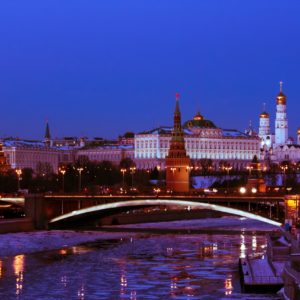-
US sanctions Arctic LNG 2 project to “degrade” Russia’s status as “leading energy supplier over time”
Date posted:
-
-
-
Post Author
Patrick LaveryCombustion Industry News Editor
-
-

The State Department of the United States is making moves to prevent Russia from exporting LNG by placing sanctions on the Arctic LNG 2 project, meaning that European and Asian countries would not be able to legally buy the product from the project.
Arctic LNG 2 is being developed by OOO Arctic LNG (a joint venture including Novatek, TotalEnergies, China National Petroleum Corporation, China National Offshore Oil Corporation, and Japan’s Mitsui and JOGMEC), and is located near Gyda, some 2,500 km north-east of Moscow, on the Kara Sea. A final investment decision was made on the project in September 2019, and the total investment is estimated at US$21.3 billion, with three liquefaction trains each of 6.6 million tonnes per annum capacity (totalling around one-fifth of Russia’s planned export capacity of 100 million tonnes/annum by 2030). Offtake agreements, of which there are at least five, were all signed between April 2019 and January 2022, prior to the Russian invasion of Ukraine.
As the Financial Times reports, the US is seeking to “toxify the project in its entirety” (in the words of a sanctions specialist at law firm Macfarlanes), and although it could cause disruption in energy markets (which the FT says the US has been trying to avoid since the Russian invasion of Ukraine), it does appear to be in keeping with the sanctions imposed upon the Nord Stream 2 pipeline prior to the Ukraine war. The State Department addressed this directly in a statement, saying “We do not have a strategic interest in reducing the global supply of energy, which would raise energy prices around the world and pad (Vladimir) Putin’s profits. We, and our allies and partners, however, share a strong interest in degrading Russia’s status as a leading energy supplier over time.” Under the sanctions, investors have until January 2024 to “wind down” their investments, though they will be able to apply for extensions to that time frame. Industry analysts expect the sanctions to tighten the LNG market for years to come, although perhaps Russia will find a way to sell the gas in spite of the sanctions.
The news comes at the same time that BP, Shell and Edison have been pressing the U.S.-EU Task Force on Energy Security to force Venture Global LNG to “immediately begin to perform” satisfying its contracts to provide LNG to European destinations. At least one other company is also pursuing contract arbitration.
BP executive Carol Howle wrote in a letter that Venture Global’s behaviour “has shaken confidence in the trustworthiness of American LNG suppliers”; Venture Global has said that its Louisiana LNG plant is not fully operational because it is undergoing repairs, which appears a contingency for which the company should have planned.
